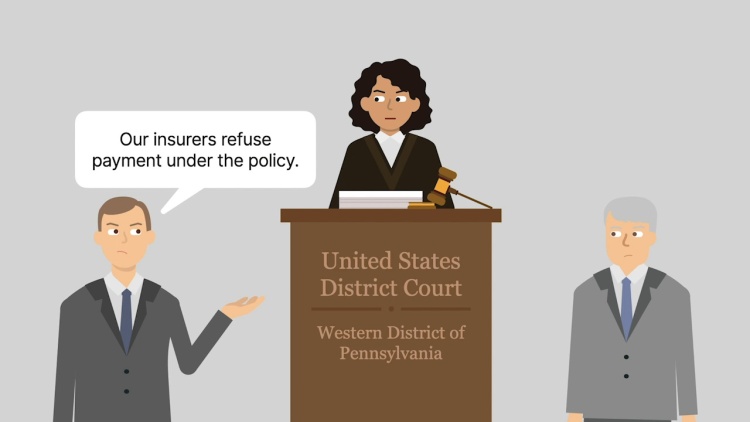Insurance Corp. of Ireland, Ltd. v. Compagnie Des Bauxites De Guinee
United States Supreme Court
456 U.S. 694 (1982)
- Written by Matthew Carney, JD
Facts
Compagnie des Bauxites de Guinee (CBG) (plaintiff) was a mining company that primarily performed mining activities in the Republic of Guinea. CBG is 51% owned by Halco, Inc., which operates in Pennsylvania. Halco assists CBG with administrative operations. In 1973, Halco procured business interruption insurance for CBG. $10 million of coverage was obtained from the Insurance Company of North America. The excess $10 million was obtained through a group of 21, primarily foreign, insurers (defendants). In February of 1974, CBG experienced an interruption of business in excess of $10 million. When the excess insurers refused to pay the claim, CBG sued in the United States District Court for the Western District of Pennsylvania. The excess insurers claimed the court lacked personal jurisdiction over them and made a subsequent motion for summary judgment on that basis. As part of the motion, CBG sought discovery involving the excess insurers’ contacts with Pennsylvania. After several delays in producing the requested material, the court warned the excess insurers that if they continued to fail to produce the requested material, it would assume, pursuant to Rule 37(b)(2)(A) of the Federal Rules of Civil Procedure (FRCP), that there existed personal jurisdiction. The excess insurers did not produce the material and the court found that personal jurisdiction existed.
Rule of Law
Issue
Holding and Reasoning (White, J.)
Concurrence (Powell, J.)
What to do next…
Here's why 907,000 law students have relied on our case briefs:
- Written by law professors and practitioners, not other law students. 47,100 briefs, keyed to 996 casebooks. Top-notch customer support.
- The right amount of information, includes the facts, issues, rule of law, holding and reasoning, and any concurrences and dissents.
- Access in your classes, works on your mobile and tablet. Massive library of related video lessons and high quality multiple-choice questions.
- Easy to use, uniform format for every case brief. Written in plain English, not in legalese. Our briefs summarize and simplify; they don’t just repeat the court’s language.









